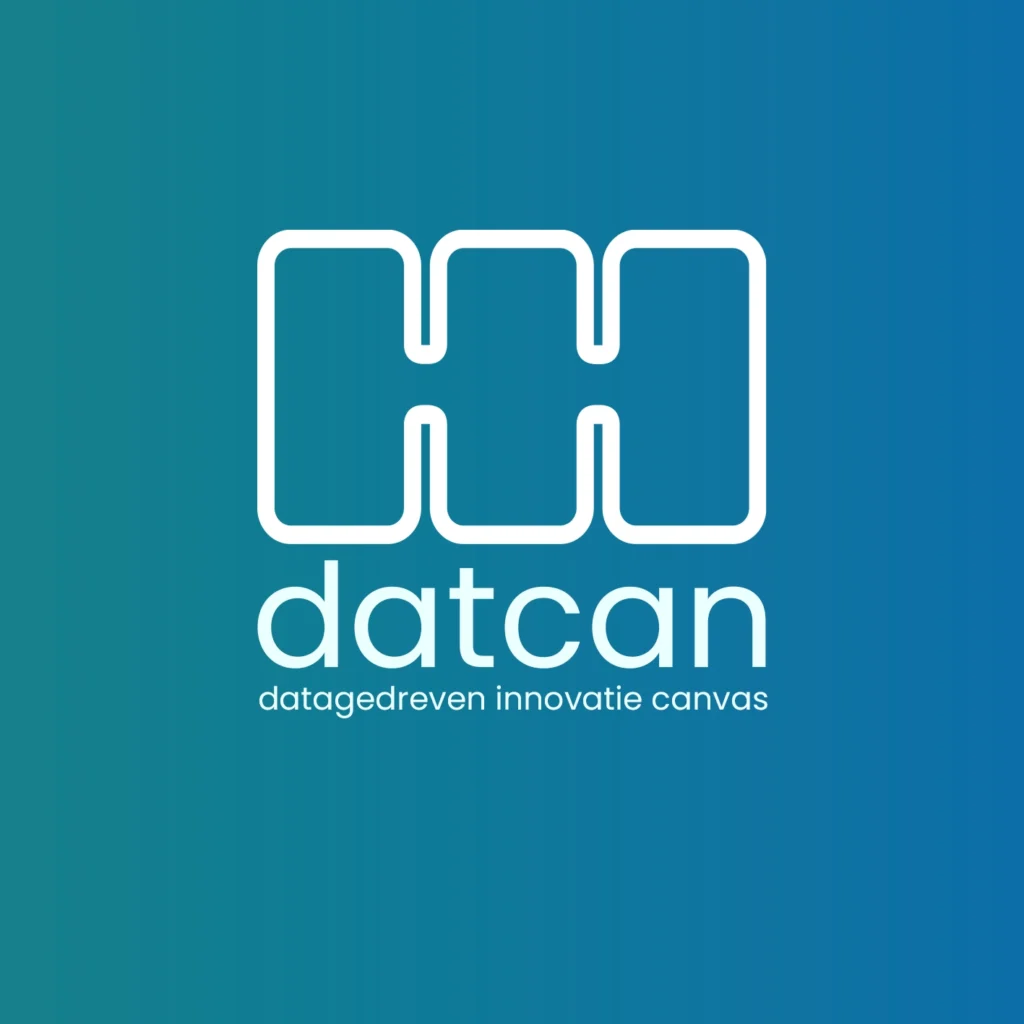
Het realiseren van kansrijke dataprojecten met DatCan
Overal schieten ‘Datalabs’ en dataprojecten als paddenstoelen uit de grond, terwijl het aantal succesverhalen achter blijft. Waarom mislukken zoveel van deze dataprojecten? En belangrijker nog, hoe kun jij zelf kansrijke dataprojecten opstarten met het datagedreven innovatiecanvas (DatCan)? Kijk deze clip over het ‘waarom’ van kansrijke dataprojecten.
 Hoofdstukken
Hoofdstukken
- Intro 00:00 – 01:00
- Kernboodschap 01:00 – 03:00
- Oorzaken falen dataprojecten 03:00 – 10:45
- Valkuil in dataprojecten 10:45 – 14:02
- Creëren van een kansrijke start 14:02 – 14:55
- Business model Canvas 14:55 – 17:50
- Datagedreven innovatiecanvas (DatCan) 17:50 – 33:30
- DatCan light 33:30 – 36:19
- Take aways 36:19 – 41:11
- Workshop Het hoe van kansrijke dataprojecten 41:11 – 42:49
📅 Events
Wil je samen met andere dataleiders aan de slag met onderstaande vragen:
- Hoe start je zelf kansrijke dataprojecten op?
- Hoe pas je DatCan toe in je eigen organisatie?
- Hoe gebruik je DatCan? De juiste werkvormen.
- Hoe ontwikkel je met een multidisciplinair team een gedeeld verhaal.
Schrijf je dan in voor een van de workshops of andere events.
📚 Literatuur
Samenvatting
Samenvatting:
Despite substantial investments, data science has failed to deliver significant business value in many
companies. So far, the reasons for this problem have not been explored systematically. This study tries to find
possible explanations for this shortcoming and analyses the specific challenges in data-driven projects. To
identify the reasons that make data-driven projects fall short of expectations, multiple rounds of qualitative
semi-structured interviews with domain experts with different roles in data-driven projects were carried out.
This was followed by a questionnaire surveying 112 experts with experience in data projects from eleven
industries. Our results show that the main reasons for failure in data-driven projects are (1) the lack of
understanding of the business context and user needs, (2) low data quality, and (3) data access problems. It is
interesting, that 54% of respondents see a conceptual gap between business strategies and the implementation
of analytics solutions. Based on our results, we give recommendations for how to overcome this conceptual
distance and carrying out data-driven projects more successfully in the future.
De toolkit op het gebied van waardecreatie met data en analytics. DatCan helpt publieke organisaties bij het succesvol uitvoeren van dataprojecten.
Samenvatting:
During the last few decades, many organizations have started recognizing the bene ts of Big Data (BD) to drive their digital transformation and to gain faster insights from faster data. Making smart data-driven decisions will help the organizations to ride the waves toward invaluable investments. The successful implementation of Big Data projects depends on their alignment with the current organizational, technological, and analytical aspects. Identifying the Critical Success Factors (CSFs) for Big Data is fundamental to overcome the challenges surrounding Big Data Analytics (BDA) and implementation. In recent years, the investigations related to identifying the CSFs of Big Data and Big Data Analytics expanded on a large scale trying to address the limitations in existing publications and contribute to the body of knowledge. This paper aims to provide more understanding about the existing CSFs for Big Data Analytics
and implementation and contributes to the body of knowledge by answering three research questions: 1) How many studies have investigated on Big Data CSFs for analytics and implementation?, 2) What are the existing CSFs for Big Data Analytics, and 3) What are the categories of Big Data Analytics CSFs?. By conducting a Systematic Literature Review (SLR) for the available studies related to Big Data CSFs in the last twelve years (2007-2019), a nal list of sixteen (16) related articles was extracted and analyzed to identify the Big
Data Analytics CSFs and their categories. Based on the descriptive qualitative content analysis method for the selected literature, this SLR paper identi es 74 CSFs for Big Data and proposes a classi cation schema and framework in terms of 5 categories, namely Organization, Technology, People, Data Management, and Governance. The ndings of this paper could be used as a referential framework for a successful strategy and implementation of Big Data by formulating more effective data-driven decisions. Future work will investigate the priority of the Big Data CSFs and their categories toward developing a conceptual framework for assessing the success of Big Data projects.
BIG DATA TEAM PROCESS METHODOLOGY: A LITERATURE REVIEW AND THE IDENTIFICATION OF CRITICAL FACTORS FOR A PROJECT’S SUCCESS
This paper reports on our review of published research relating to how teams work together to execute Big Data projects. Our findings suggest that there is no agreed upon standard for executing these projects but that there is a growing research focus in this area and that an improved process methodology would be useful. In addition, our synthesis also provides useful suggestions to help practitioners execute their projects, specifically our identified list of 33 important success factors for executing Big Data efforts, which are grouped by our six identified characteristics of a mature Big Data organization.
